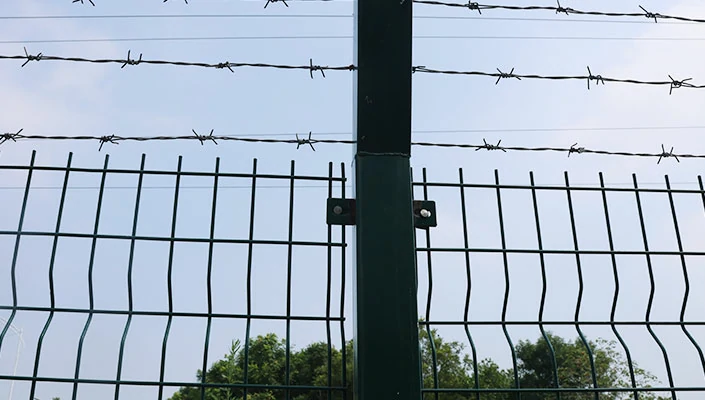weld mesh fence panel factories
Understanding Welded Mesh Fence Panel Factories An Overview
Welded mesh fence panels have become increasingly popular due to their durability, security, and versatility. They are widely used in various applications, ranging from residential to commercial and industrial settings. As the demand for these sturdy fence panels continues to grow, the importance of understanding welded mesh fence panel factories becomes crucial for both buyers and investors. This article delves into the workings of these factories, the manufacturing process, and the benefits of welded mesh fencing.
What are Welded Mesh Fence Panels?
Welded mesh fence panels are constructed from high-quality steel wires that are welded at intersections to form a robust mesh. This process not only enhances their strength but also ensures that they can withstand harsh weather conditions, making them an ideal choice for fencing around properties, construction sites, parks, and various other areas requiring security and safety.
The Manufacturing Process
The manufacturing of welded mesh fence panels involves several stages, primarily
1. Raw Material Selection Quality begins with the selection of raw materials. Factories typically use galvanized steel wires or stainless steel wires for their durability and resistance to rust. The wire diameter can vary depending on the required strength of the final product.
2. Wire Preparation The selected steel wires undergo processes such as straightening and cutting to achieve uniform length and straightness. This is essential for ensuring the quality of the welded mesh panels.
3. Welding The wire mesh is created by arranging horizontal and vertical wires into a grid pattern. These wires are then welded at their intersections, which provides seamless joint strength. The welding can be done using different methods, including electric resistance welding, which is commonly used for its efficiency and effectiveness in producing strong bonds.
4. Finishing After welding, the panels are typically treated to enhance their longevity. This may involve galvanization (applying a protective zinc coating) or applying a PVC coating to provide additional protection against corrosion and environmental damage.
5. Quality Control A crucial part of the manufacturing process, quality control ensures that the finished panels meet industry standards. This includes checking for structural integrity, weld quality, and coating uniformity.
weld mesh fence panel factories

6. Packaging and Distribution Once the panels pass quality checks, they are packaged for transport. Factories often work with logistics companies to ensure timely delivery to suppliers and customers.
Benefits of Welded Mesh Fence Panels
Welded mesh fence panels offer a range of benefits
- Durability The robust nature of welded mesh panels makes them resistant to wear and tear, ideal for high-traffic areas.
- Security The solid structure of welded mesh panels provides deterrence against intruders, making them a popular choice for securing private properties and commercial establishments.
- Cost-Effectiveness While the initial investment may be higher than other fencing options, the longevity and low maintenance needs of welded mesh panels make them a cost-effective choice in the long run.
- Aesthetic Appeal Available in various designs and coatings, welded mesh fencing can enhance the aesthetic value of a property while providing security.
- Environmental Considerations Many manufacturers focus on sustainability by utilizing recycled materials and environmentally friendly coatings in their production processes.
Conclusion
Welded mesh fence panel factories play a vital role in producing high-quality fencing solutions for a variety of needs. Understanding the manufacturing process and the advantages of these panels can assist consumers in making informed decisions when choosing fencing options. Whether for residential, commercial, or industrial use, welded mesh fence panels stand out as a dependable choice for security and durability. As such, investing in welded mesh fencing is a step towards ensuring safety and enhancing the value of any property.
-
Space-Saving Chain Fence Hacks Vertical Gardening with Cyclone MeshNewsJul.16,2025
-
Innovations in Iron Nail Wire Production for Modern ConstructionNewsJul.16,2025
-
Creative Uses of Wire Netting Fence in Modern Landscape DesignNewsJul.16,2025
-
Barbed Wire Fence Innovations in Anti-Climb TechnologyNewsJul.16,2025
-
Architectural Uses of Umbrella Nails for Aesthetic Roof DesignsNewsJul.16,2025
-
Architectural Uses of Razor Barbed Wire in Secure Urban DesignNewsJul.16,2025




